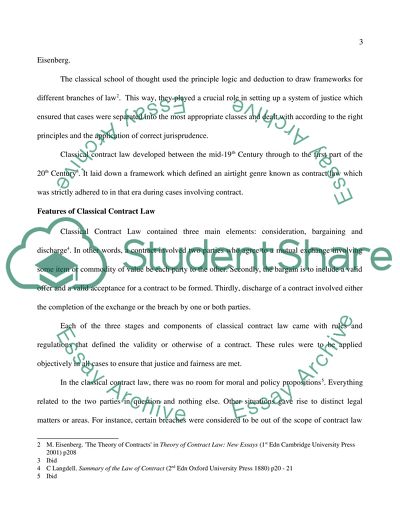Cite this document
(“What is meant by the phrase classical contract law To what extent are Essay”, n.d.)
What is meant by the phrase classical contract law To what extent are Essay. Retrieved from https://studentshare.org/law/1587503-what-is-meant-by-the-phrase-classical-contract-law-to-what-extent-are-such-ideas-still-relevant-in-contemporary-contractual-relations
What is meant by the phrase classical contract law To what extent are Essay. Retrieved from https://studentshare.org/law/1587503-what-is-meant-by-the-phrase-classical-contract-law-to-what-extent-are-such-ideas-still-relevant-in-contemporary-contractual-relations
(What Is Meant by the Phrase Classical Contract Law To What Extent Are Essay)
What Is Meant by the Phrase Classical Contract Law To What Extent Are Essay. https://studentshare.org/law/1587503-what-is-meant-by-the-phrase-classical-contract-law-to-what-extent-are-such-ideas-still-relevant-in-contemporary-contractual-relations.
What Is Meant by the Phrase Classical Contract Law To What Extent Are Essay. https://studentshare.org/law/1587503-what-is-meant-by-the-phrase-classical-contract-law-to-what-extent-are-such-ideas-still-relevant-in-contemporary-contractual-relations.
“What Is Meant by the Phrase Classical Contract Law To What Extent Are Essay”, n.d. https://studentshare.org/law/1587503-what-is-meant-by-the-phrase-classical-contract-law-to-what-extent-are-such-ideas-still-relevant-in-contemporary-contractual-relations.


